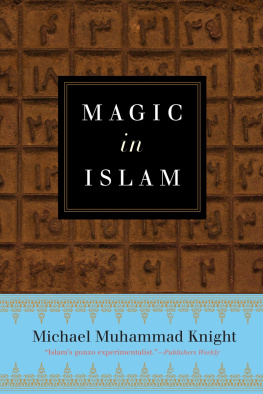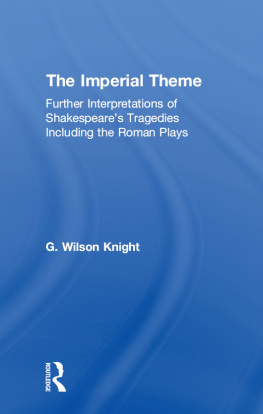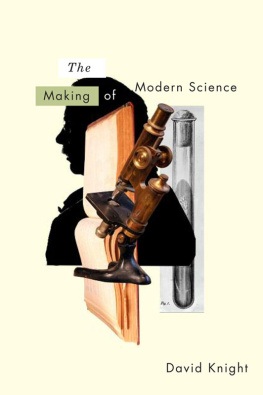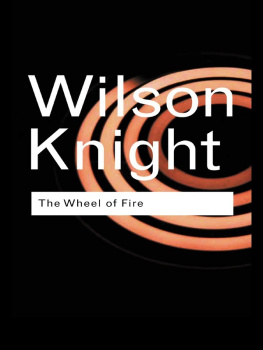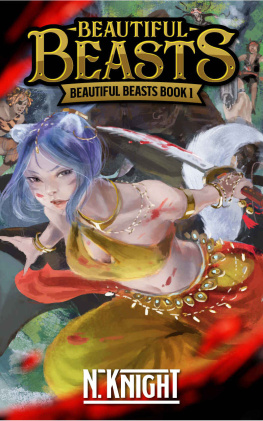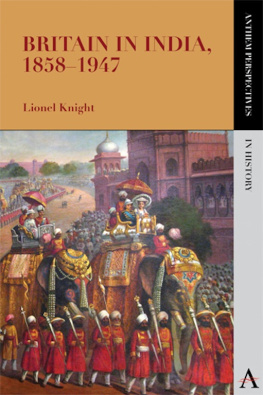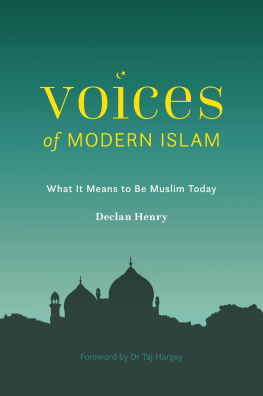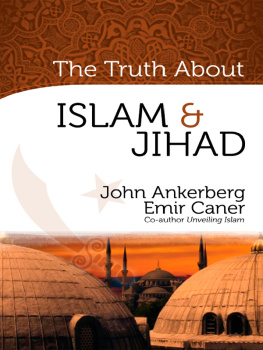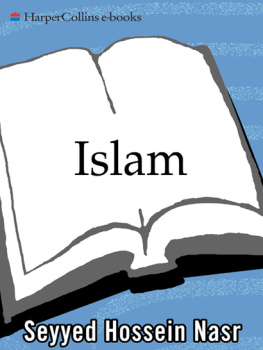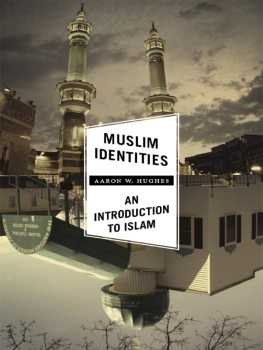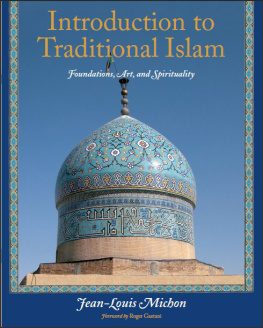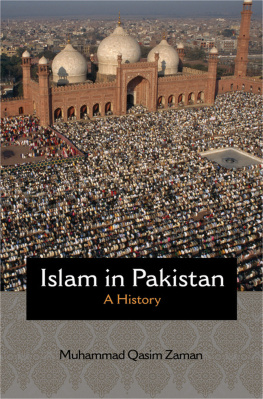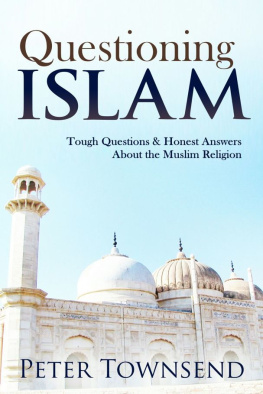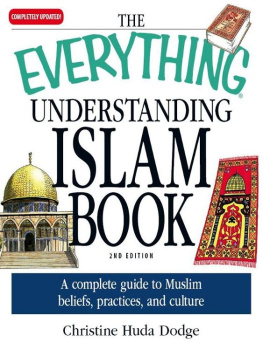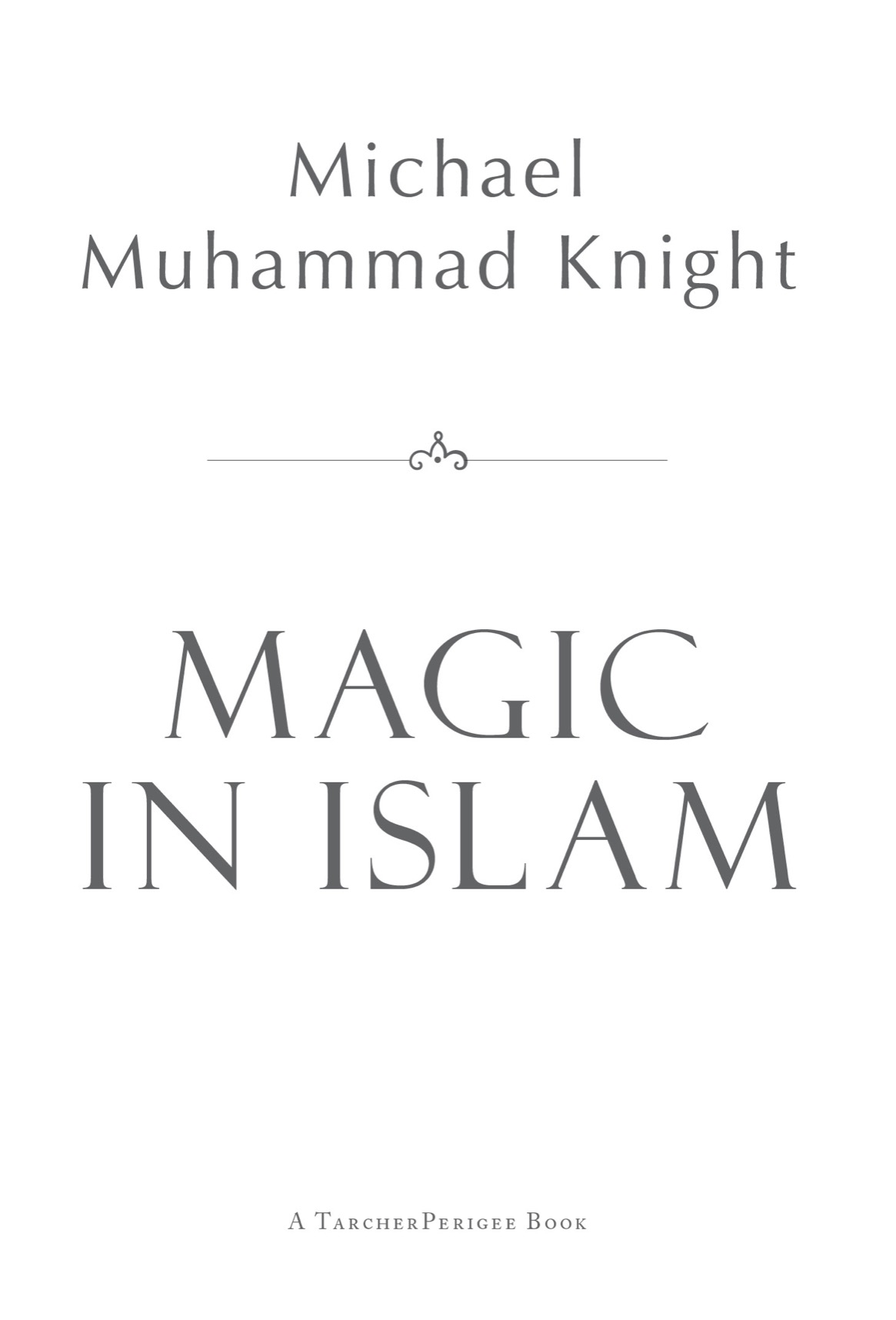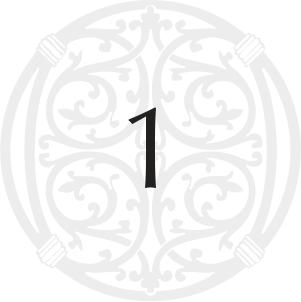
T ARCHER P ERIGEE
An imprint of Penguin Random House LLC
375 Hudson Street
New York, New York 10014

Copyright 2016 by Michael Muhammad Knight
Penguin supports copyright. Copyright fuels creativity, encourages diverse voices, promotes free speech, and creates a vibrant culture. Thank you for buying an authorized edition of this book and for complying with copyright laws by not reproducing, scanning, or distributing any part of it in any form without permission. You are supporting writers and allowing Penguin to continue to publish books for every reader.
Most Tarcher/Penguin books are available at special quantity discounts for bulk purchase for sales promotions, premiums, fund-raising, and educational needs. Special books or book excerpts also can be created to fit specific needs. For details, write: SpecialMarkets@penguinrandomhouse.com.
Library of Congress Cataloging-in-Publication Data
Names: Knight, Michael Muhammad, author.
Title: Magic in Islam / Michael Muhammad Knight.
Description: New York : TarcherPerigee / 2016. | Includes bibliographical references.
Identifiers: LCCN 2015048273 (print) | LCCN 2015049295 (ebook)
ISBN 9780399176708 (hardcover) | ISBN 9781101983492 (ebook)
Subjects: LCSH: MagicReligious aspectsIslam. | Islamic magic.
BISAC: BODY, MIND & SPIRIT / Magick Studies. | RELIGION / Islam / General. | RELIGION / Mysticism. Classification: LCC BP190.5.M25 K58 2016 (print) | LCC BP190.5.M25 (ebook)
DDC 297.3/9dc23
Cover design by Nita Ybarra
Version_1
For Azreal, teacher and friend
CONTENTS
Introducing Muslim Magic
They said, You are only of those affected by magic.
QUR N 26:153
T his project began with interest in a genre of literature that has proliferated in American publishing, particularly in the years following 9/11: the intro to Islam. Designed to provide the non-Muslim reader with basic awareness of Muslim beliefs and practices, these introductions deal in glimpses from afar. They zoom their lenses all the way out, offering Islam as it might look from light-years away. These introductions can serve a useful purpose, since Americans dont score high on cultural literacy; but the genre itself comes with pluses and minuses.
The constraints of the intro genre, regardless of the specific topic, require that the author create the topic anew, because the author must take vast amounts of material and complexity and boil it all down to what s/he considers to be the essential concepts and information for a reader with no prior familiarity. Given the immeasurable diversity of Muslim beliefs, interpretations, practices, and communities even in our present world, not to mention Muslim diversity throughout nearly fifteen centuries, writing an introduction to Islam means that the author must locate some workable center. Works in this genre often attempt to ground their material in things like the text of the Qurn (believed to be the word of God as revealed to Muhammad), the corpus of hadth literature (statements and actions attributed to Muhammad), and generalized ideas about belief and practice, constructing Islam through a bulleted set of key points. The intro books typically present Islam as resting upon a scriptural foundation, scriptural which isnt necessarily wrongplenty of Muslims would agree with this depictionbut reflects the choices of their authors and the often Protestant-ish assumptions about religion that inform the genre at large. They give us Islam as defined by scripture (and scripture as they choose to define it), theologians, and jurists while all but abstracted from history, with little sense that the prescriptive works of Islams seminal thinkers do not necessarily reflect Islam as lived on the ground, in the experience of real human bodies. I cant imagine Islam as only a tradition made only by the books that defeated other books in power struggles to become canon. There are also the intellectuals of the past who, for whatever reason, failed to become authoritative for later generations. When we leave them out of our intro books, we present Islam as an unchanging thing that exists outside of time, rather than as the site of contests between competing forces with different ideas about what constitutes the authentic and authoritative, with not a singular canon but a multiplicity of canons that can both oppose and overlap one another.
We should also consider that before modern printing and increases in literacy, these brilliant premodern intellectualsthe winners and losers, privileged and suppressed voices aliketypically wrote with neither the ability nor the interest in communicating with the masses, but were more often elitists arguing with other elitists. What about the vast majority of Muslims throughout the centuries who left no books behind, and whose lived experiences of the tradition would be dismissed or outright condemned by the elite thinkers? The intro-to-Islam genre does not tend to take them seriously as participants and contributors.
Other elements in these books and their organizational structures reveal the authors often unspoken beliefs and priorities: relegating Shism or Sfism to their own separate chapters, for example, rather than a more integrated approach that includes these traditions within Islam at large; emphasis on Islamic law and theories of the state; narratives of Muslims intellectual or civilizational decline, attempts at renewal, and related crises of Islam in the modern world; This should be obvious and go without saying, but the selection of chapters and topics reveals the priorities of the author, rather than simply Islam as it is.
Deciding whats crucial for a basic or introductory glance at Islam also means deciding what we can afford to leave out and cut away: whatever texts, practices, traditions, communities, and people are minor, marginal, and unnecessary. By presenting what s/he has judged to be essential knowledge, the author of the intro genre does not simply privilege the mainstream, but invents it. Perhaps it should not be a surprise, then, that these intro-to-Islam books, providing the basic information as defined by the authors, the anticipated needs of readers, and the desires of the publishing industry, focus on topics of modernity, violence, liberal democracy, religious pluralism, and the women in Islam question. And these books dont have room for chapters on magic.
Surrounded by introductions to Islam that cannot help but become productions of Islam, I had to wonder how an intro to Islam might look if written from a completely different set of priorities. Perhaps an introduction to Islam could depart from other works in the genre by not locating Islams center in a supposed heartland of Arab nations, but instead looking at places with higher populations of Muslimsnations such as Indonesia, Nigeria, Turkey, Iran, Pakistan, and even India (where Indias Muslim communities, generally estimated at below 20 percent of the overall population, numerically overwhelm Saudi Arabias 99 percent Muslim population). One could write an introduction to Islam that was not Sunn-centered, or male-centered, or law-centered, or faithful to a predetermined canon; what would an introduction to Islam look like if it did not let only the classical male theologians and jurists speak, but let the intro come through marginalized voices? Add them up and they become the mainstream.

